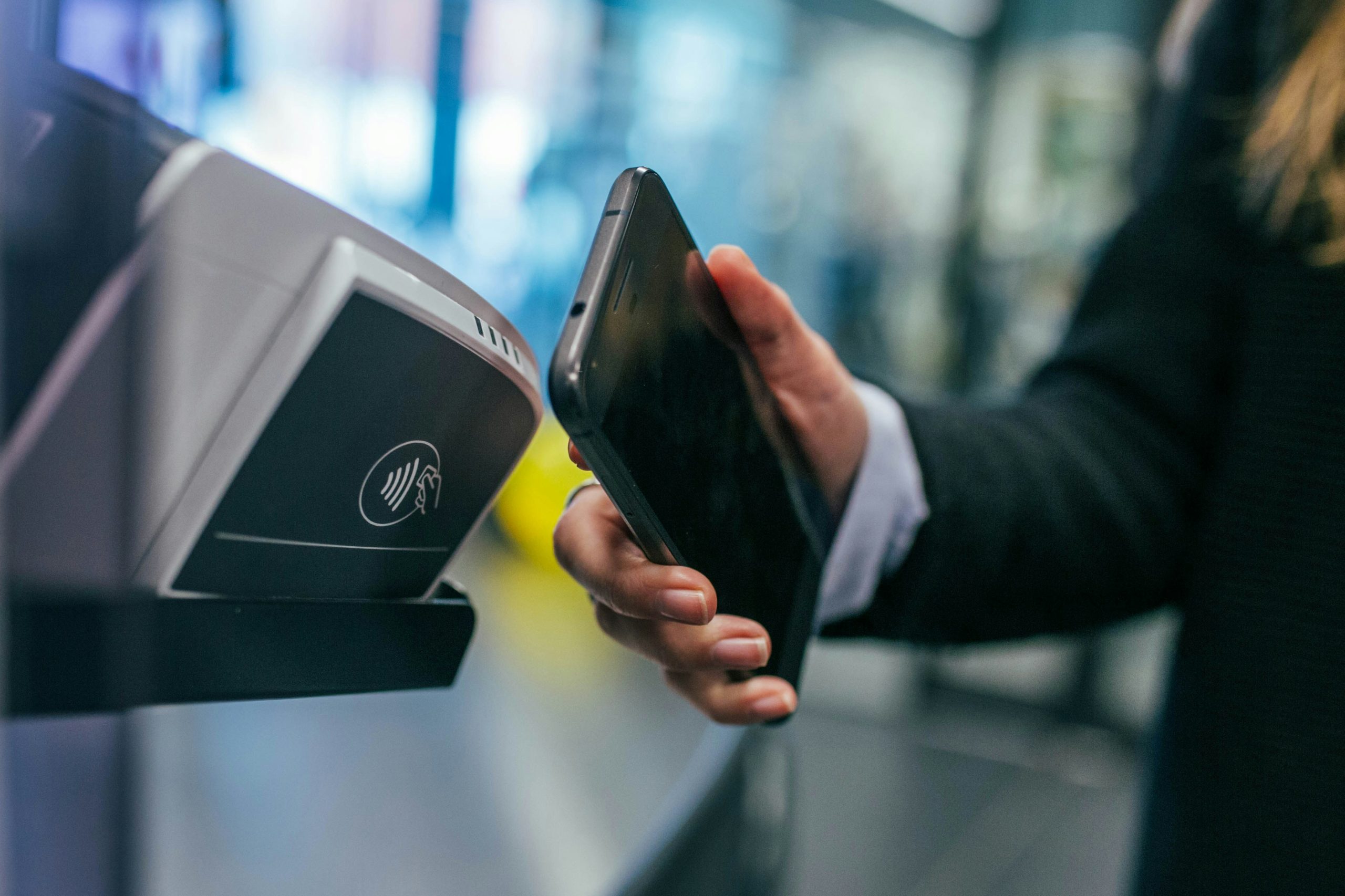In a world where digital finance reigns supreme, the sudden withdrawal of Cash App from the UK market feels like a seismic shift in the landscape of online payments. Just as consumers were getting comfortable with one-click transactions and instant peer-to-peer money transfers, the app’s abrupt exit raises eyebrows and sparks curiosity. What led to this unexpected decision? Was it regulatory hurdles, fierce competition, or something more profound that sent ripples through its user base?
As we delve into the reasons behind Cash App’s departure and the implications for users on both sides of the pond, it’s essential to consider not just what was lost but also what might emerge in its place. For loyal customers who relied on this platform for seamless transactions, this development could signal a significant change in their financial habits. Join us as we explore why Cash App packed its bags and left the UK—and what it means for your wallet moving forward.
Background: Cash App’s Launch in the UK
Cash App made its much-anticipated debut in the UK in early 2021, positioning itself as a direct competitor to established financial platforms. The app promised an innovative approach to money management with features like peer-to-peer payments, cryptocurrency trading, and even cash boosts for purchases made at select retailers. Initially met with enthusiasm, Cash App aimed to capture the attention of a younger demographic seeking modern banking solutions that prioritize convenience and user experience over traditional methods.
However, while the platform’s sleek interface and unique offerings drew users in, it faced significant headwinds against deeply entrenched local competitors such as Revolut and Monzo. These rivals not only had brand loyalty but also a strong grasp of regulatory compliance—an area where Cash App stumbled. Adapting to the nuanced demands of the UK market proved challenging; operational hurdles arose from navigating complex financial regulations and adjusting product features to meet local consumer preferences. Ultimately, Cash App’s ambitious entry was met with the stark reality of competing on foreign soil, leading to its decision to exit rather than compromise its standards or customer trust.

Reasons for Ending UK Operations
The decision to end operations in the UK stems from a combination of regulatory complexities and competitive pressures that created an unsustainable environment for Cash App. The stringent regulations imposed by the UK’s Financial Conduct Authority (FCA) meant that companies had to navigate a labyrinth of compliance requirements, which not only increased operational costs but also slowed down innovation. This bureaucracy stands in stark contrast to the more flexible regulatory landscapes found in other markets, where digital payment services can thrive more easily.
Moreover, Cash App faced fierce competition from established players such as Revolut and Monzo, which had already secured significant market share and consumer loyalty. These competitors offered comprehensive financial services tailored specifically for local users, making it challenging for Cash App to differentiate itself. As user acquisition became increasingly difficult without a strong local foothold or unique value propositions, the decision to withdraw was not just strategic but essential for preserving resources and focusing on more lucrative markets. This retreat serves as a reminder of the importance of local insights and adaptability in the fast-evolving fintech landscape.
Impact on Users in the UK
The abrupt withdrawal of Cash App from the UK market has left many users grappling with the implications for their everyday financial activities. For tech-savvy individuals who embraced Cash App’s seamless peer-to-peer transactions and banking features, this decision poses a significant inconvenience. Users relied on its user-friendly interface and instant payment capabilities to simplify their personal finances, making budgeting and bill splitting more accessible than ever before. Without viable alternatives that offer the same level of integration and ease, many are now forced to reconsider how they manage their money in an increasingly cashless society.
Moreover, this move signals a broader trend within fintech companies as they evaluate market viability amidst regulatory hurdles and competitive pressures. Users may be left questioning whether their choice of digital finance platforms provides adequate stability or support for evolving needs, especially as financial ecosystems continue to shift. As brands like Cash App pivot away from markets like the UK, customers must also become more educated about privacy concerns and service reliability with other service providers that emerge in response to these gaps—proactively forging paths toward robust financial management amid uncertainty. The lesson here is clear: adaptability remains crucial, not just for companies but also for users who must stay informed about the changing landscape of digital finance.

Alternatives to Cash App for Users
For users seeking alternatives to Cash App, several mobile payment platforms come equipped with unique features that set them apart. Venmo, popular in the U.S., allows for social interactions through payment descriptions and comments, ideal for those who enjoy sharing experiences alongside transactions. Meanwhile, platforms like Revolut offer broader financial services such as currency exchange and cryptocurrency trading, catering to a more globally minded user base. This flexibility can be especially advantageous for frequent travelers or tech-savvy individuals looking to diversify their digital wallets.
On the other side of the spectrum is PayPal, which continues to dominate with its extensive merchant partnerships and buyer protection policies. Its robust system lends an air of security many users appreciate when making larger purchases or interacting with less familiar vendors online. Thus, while navigating away from Cash App might feel daunting at first glance, these alternatives offer innovative tools that can enhance your financial management and digital transactions in exciting new ways. The evolving landscape of fintech ensures that there’s something out there tailored just for you—no matter your spending habits or lifestyle preferences.
Future of Digital Payment Apps in the UK
The future of digital payment apps in the UK is set to evolve dramatically in the wake of recent changes, like Cash App’s exit from the market. As consumers increasingly lean towards contactless and mobile transactions, there’s a growing opportunity for innovative solutions that can meet their demands for speed, security, and user-friendly interfaces. Emerging technologies such as blockchain and artificial intelligence are poised to redefine how we engage with our finances, offering enhanced security features and personalized user experiences that traditional banking methods struggle to match.
Moreover, with regulatory shifts aimed at fostering competition within the fintech landscape, diverse players are emerging beyond established giants. This shift will encourage startups to explore niche markets—whether through microtransactions or community-focused payment systems—leading users toward more tailored financial solutions. As traditional cash usage dwindles and digital literacy increases across all demographics, consumers in the UK may soon find themselves navigating a landscape filled with accessible options that prioritize convenience while reinforcing consumer protection standards. The adaptation to these new tools will not only dictate individual financial habits but could also reshape entire industry dynamics as companies race to innovate and capture an increasingly savvy audience.

Conclusion: Implications of Cash App’s Exit
The exit of Cash App from the UK market heralds significant shifts in the landscape of mobile payment solutions. For consumers, this downturn signals a potential gap in their everyday digital financial activities; many will need to pivot to alternative platforms that may not only charge higher fees but could also lack some of the user-friendly features that Cash App offered. The transition may cause an initial disruption in how people manage their transactions, spurring a deeper exploration into other services available and possibly fostering competition among remaining players.
For investors and stakeholders within fintech, Cash App’s withdrawal emphasizes the challenges inherent in international expansion. The nuances of local regulations, cultural differences in financial habits, and varying consumer preferences can pose substantial barriers. This exit might prompt companies to reevaluate their strategies when entering foreign markets, emphasizing localized approaches and greater adaptability. As businesses analyze this move, there’s potential for innovation: legacy systems could be upgraded or entirely new platforms designed to fill the void left behind by Cash App—ultimately reshaping consumer expectations around digital finance across different regions.